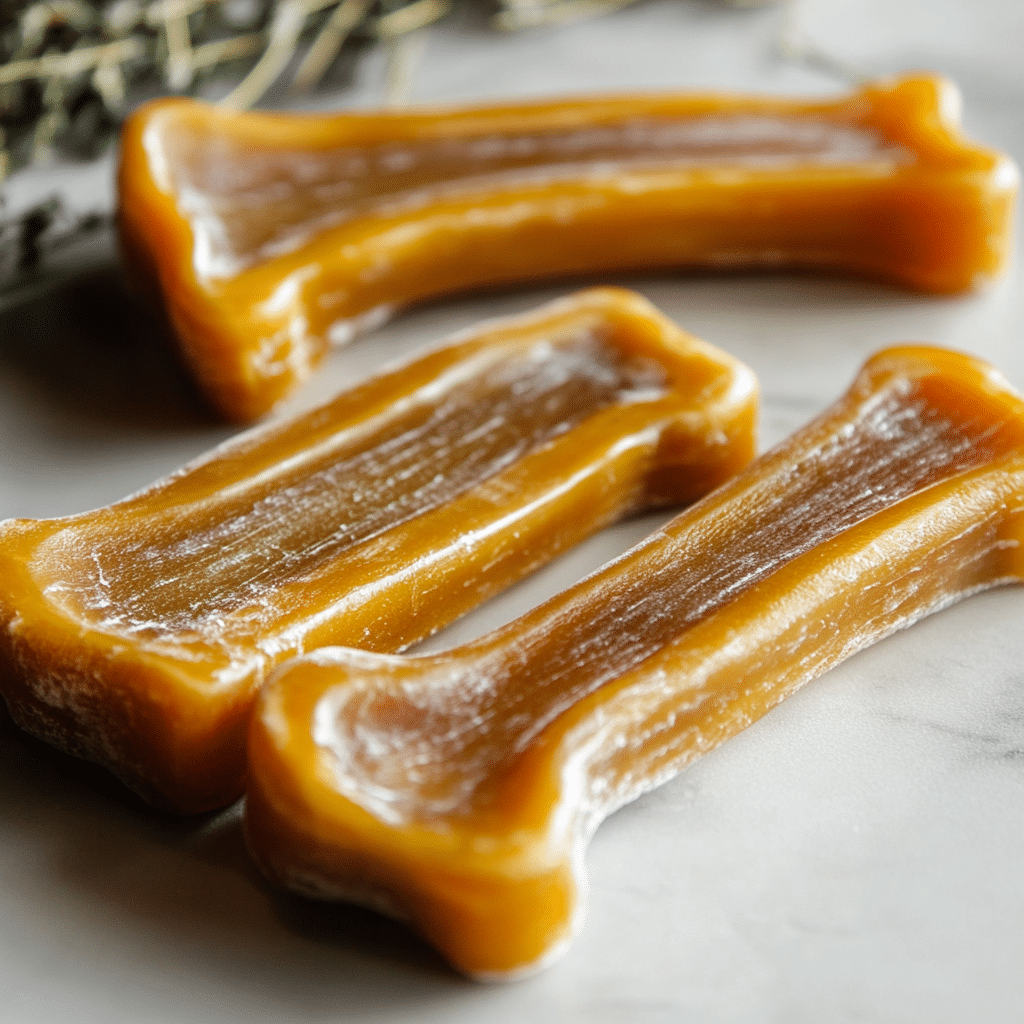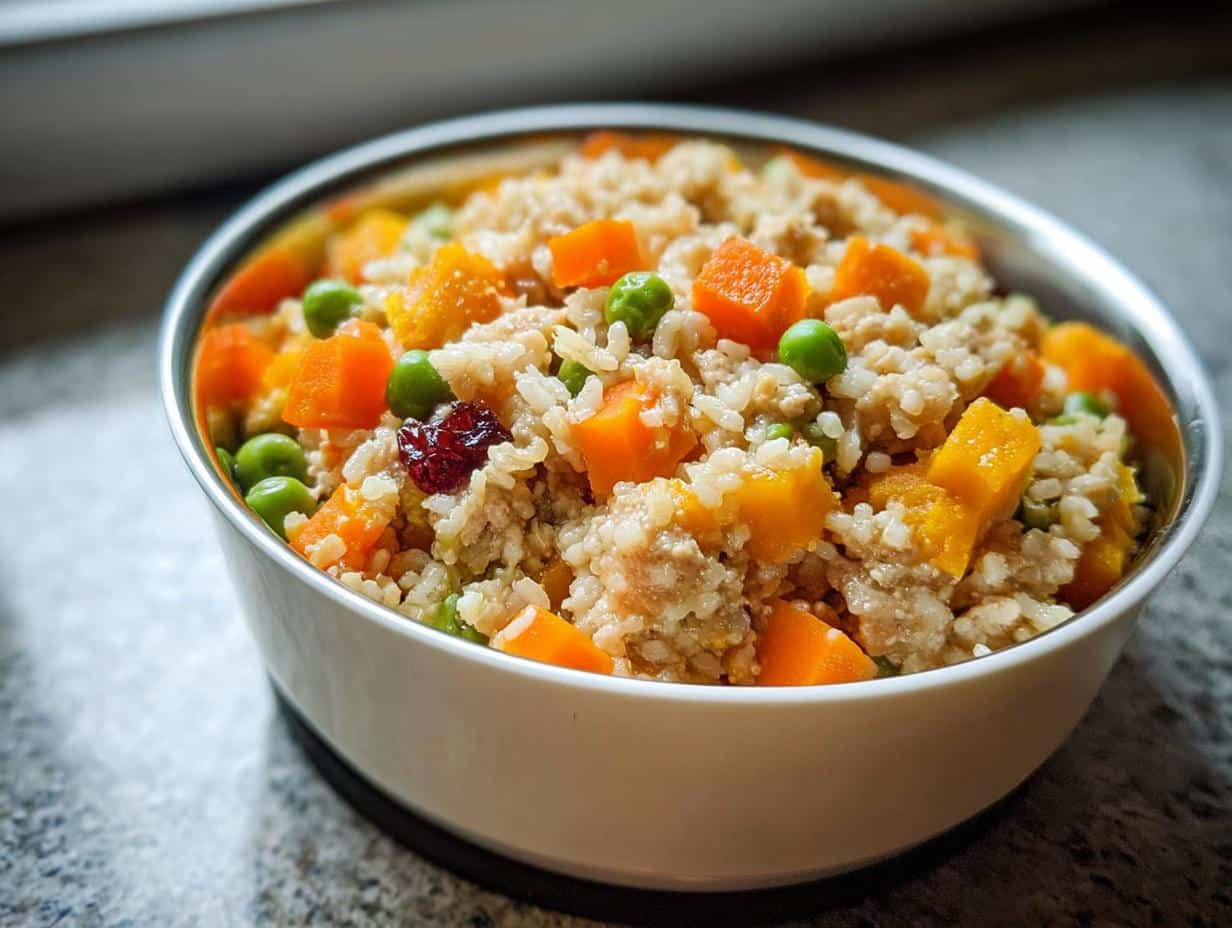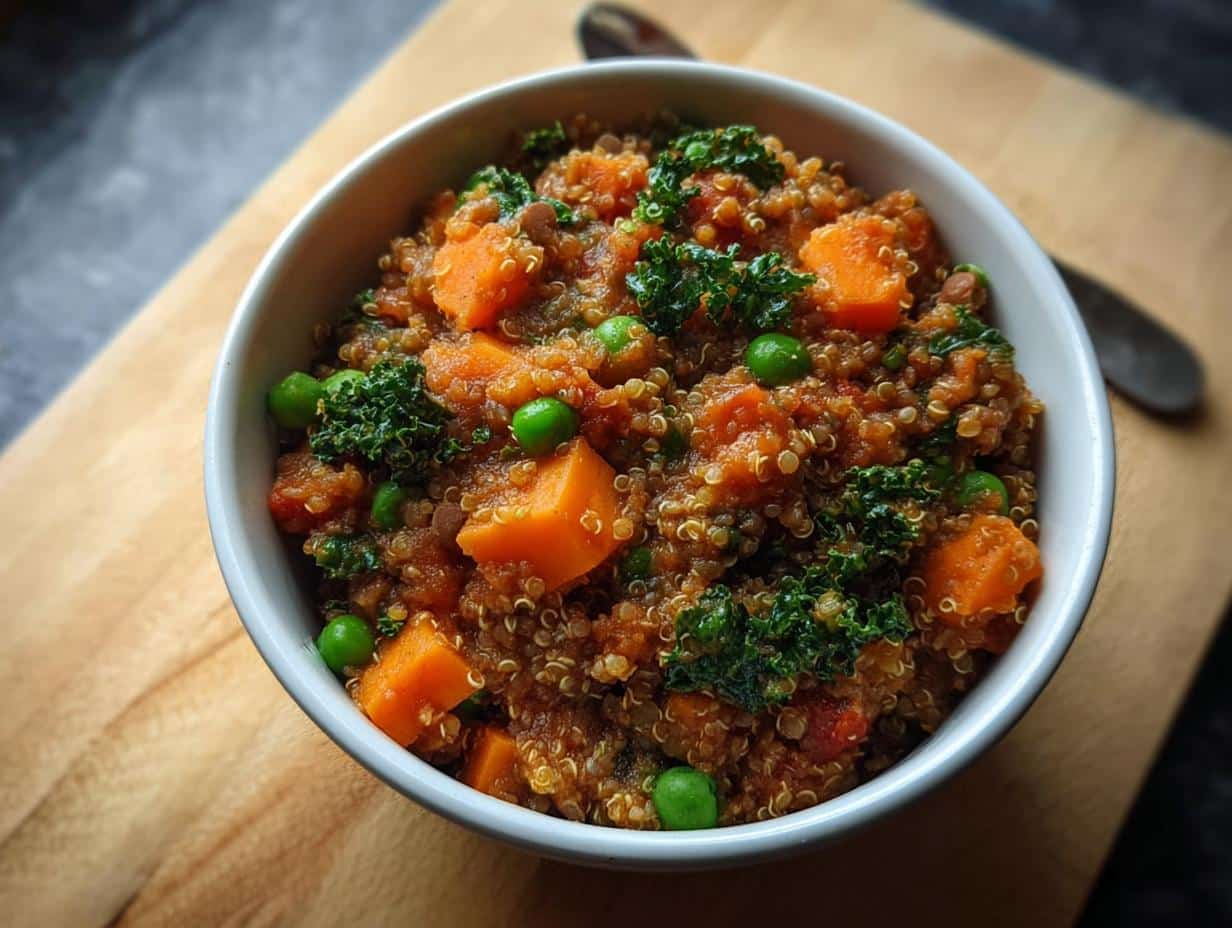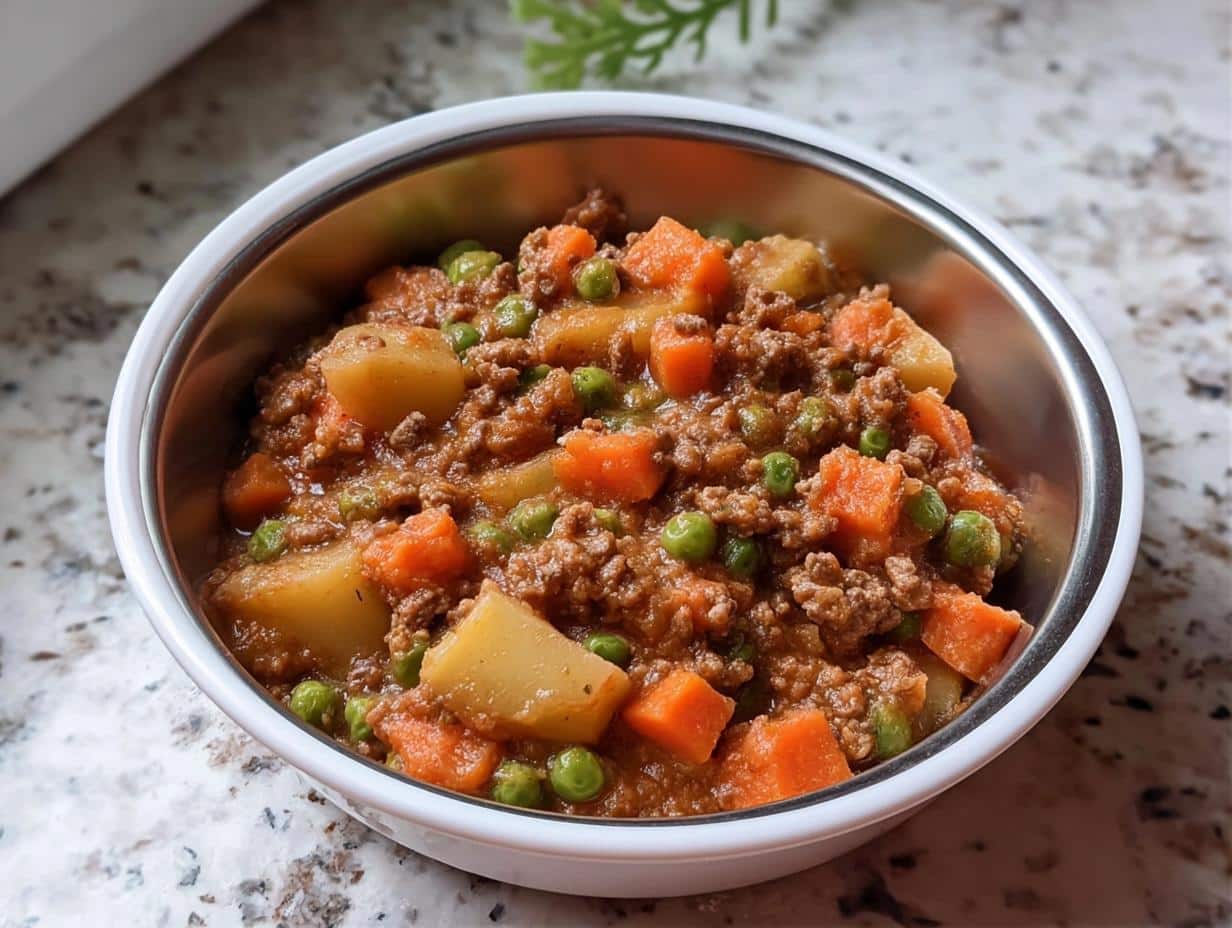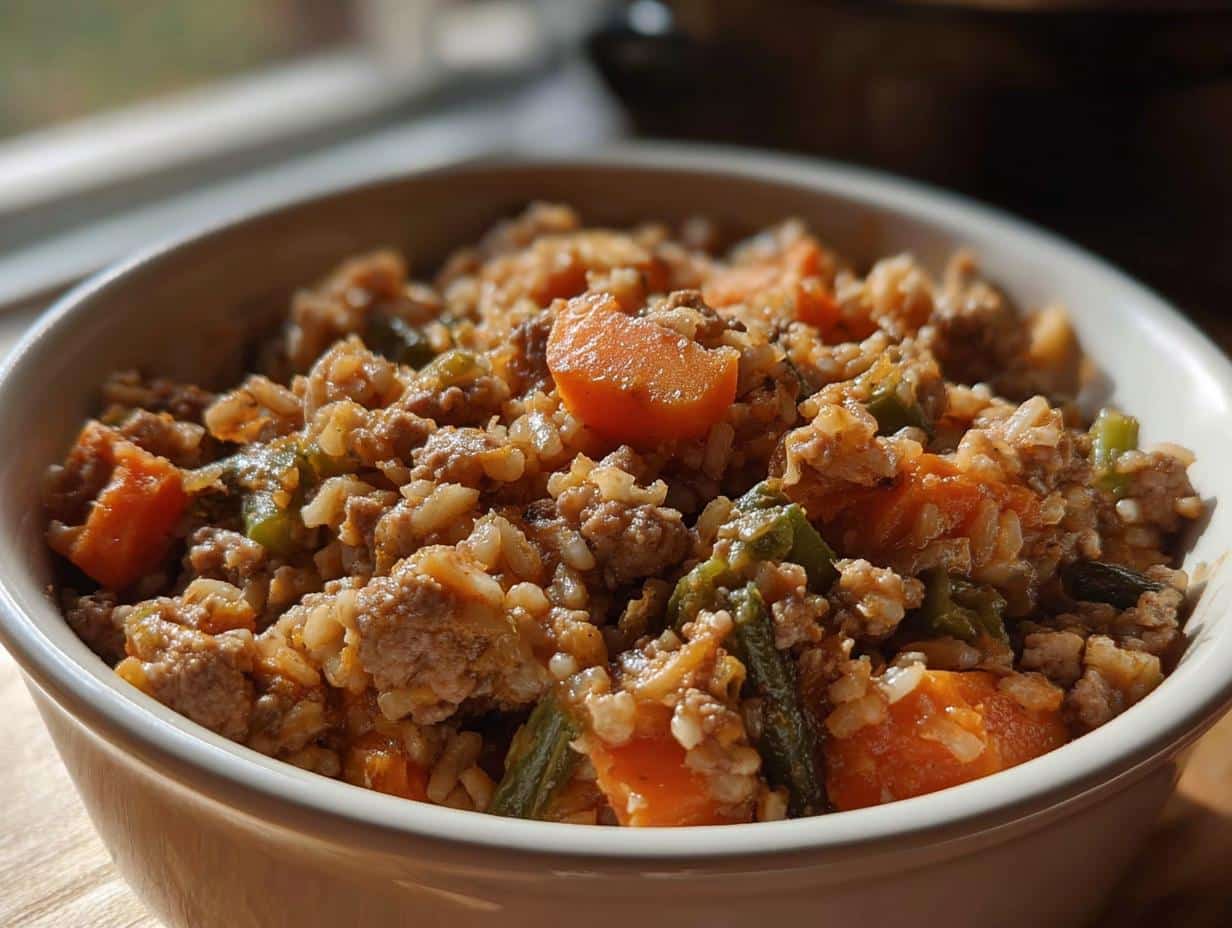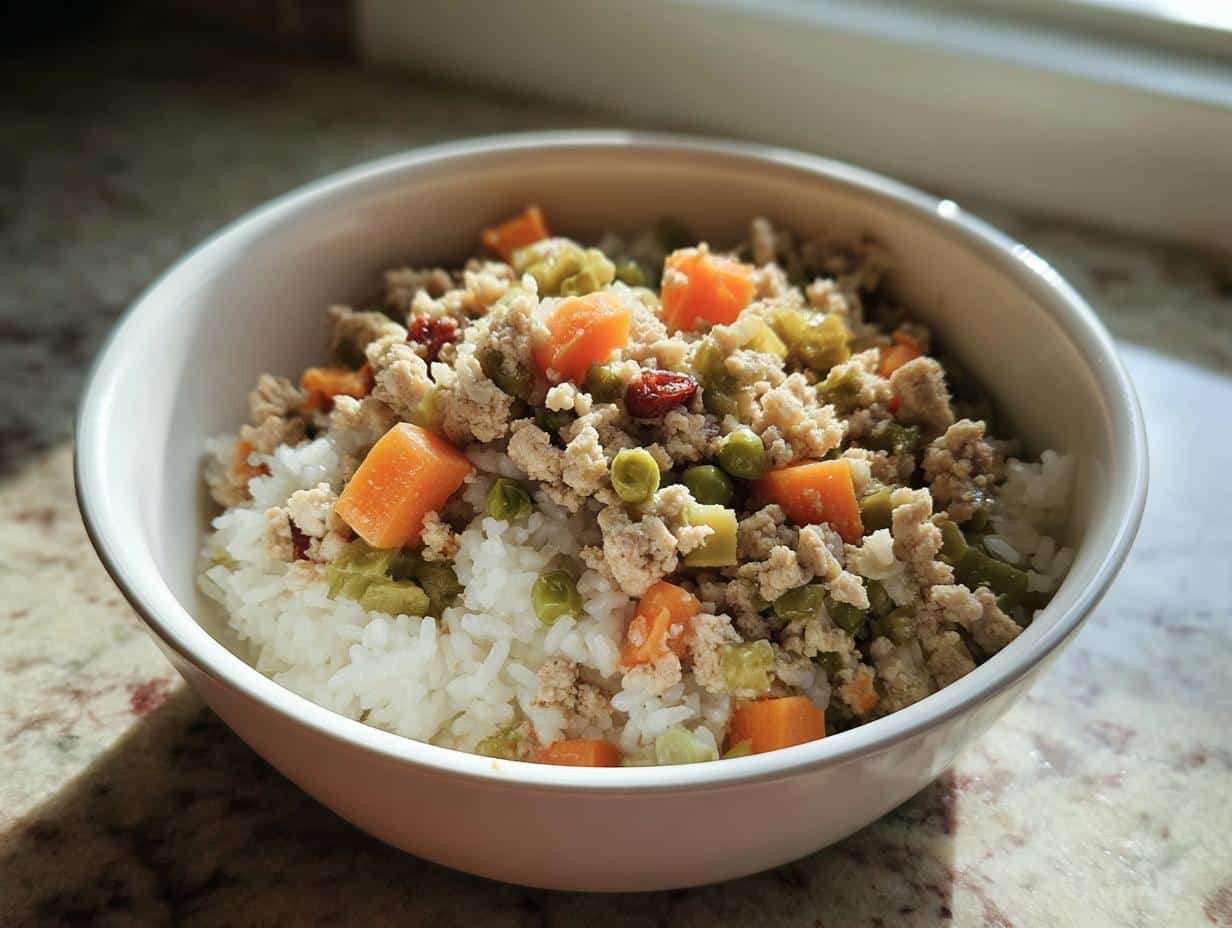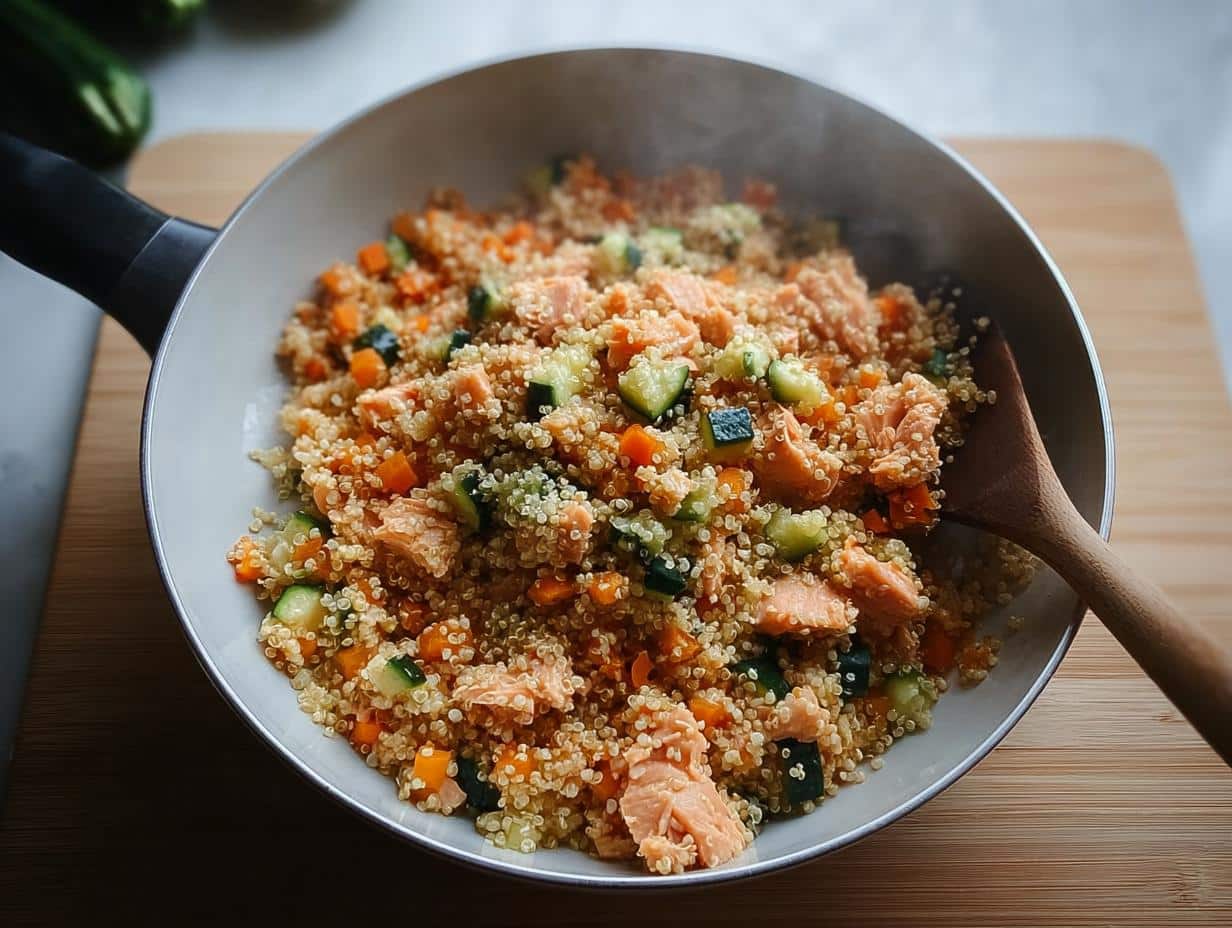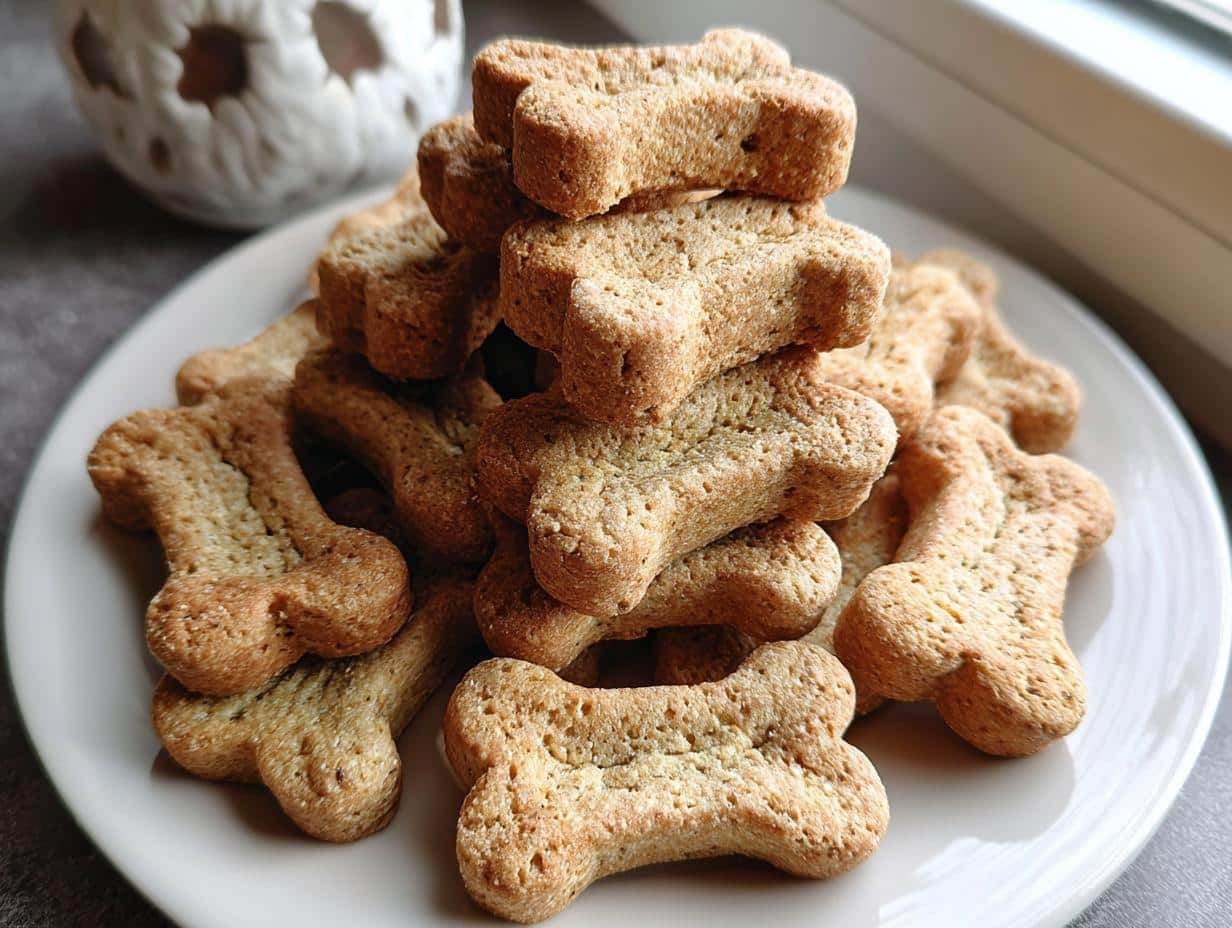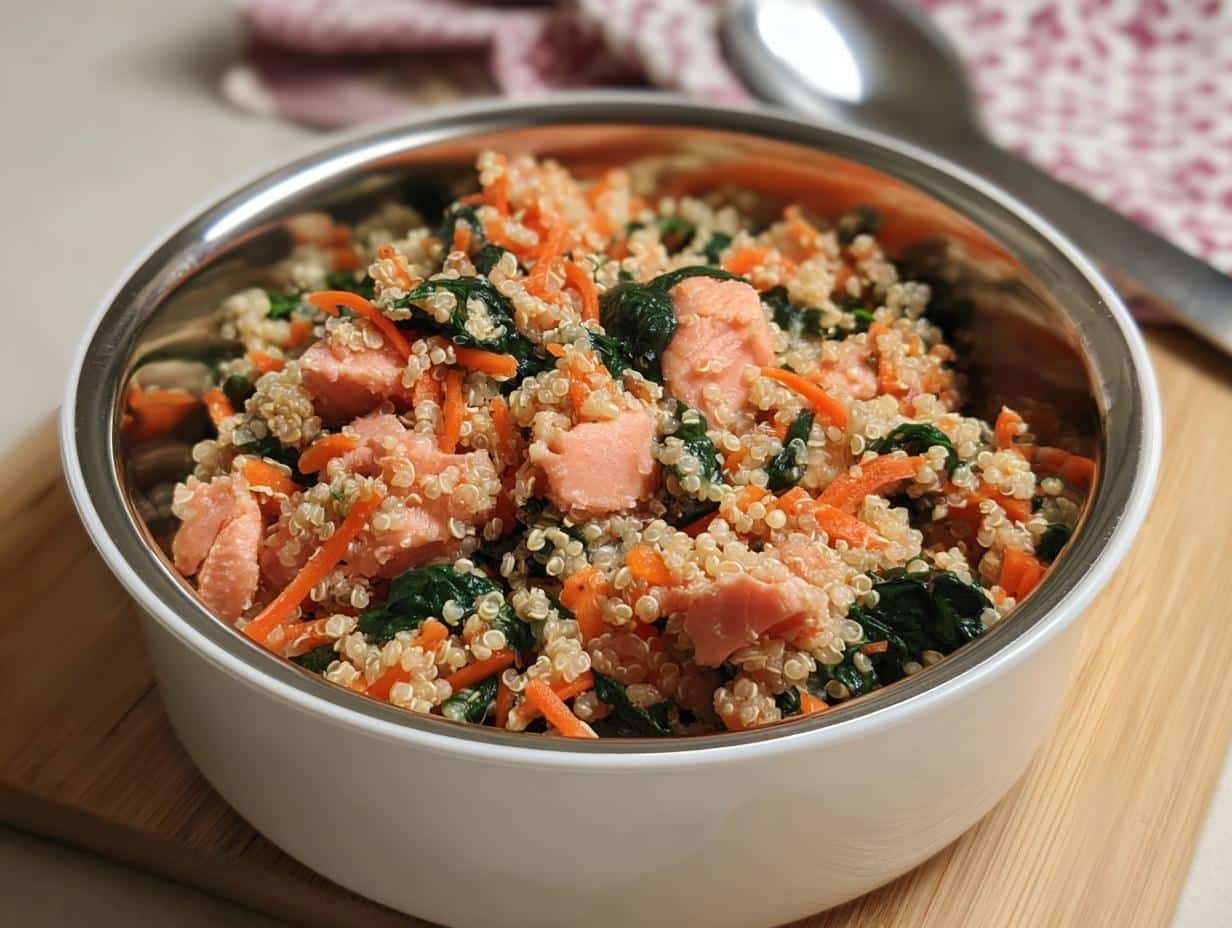Finding the perfect dog treat can feel like a guessing game—especially if you’re aiming for something that’s natural, nutritious, and safe to chew. That’s where apple & carrot hard bones for dogs come in. Packed with vitamins, these crunchy snacks aren’t just tasty they’re healthy, too.
In this guide, we’ll explore why more pet owners are turning to wholesome treats like apples and carrots. We’ll answer questions like “Can dogs eat raw carrots and apples?” and “Are hard bones really safe?” You’ll also find a homemade recipe, safety tips, and a breakdown of nutritional benefits your pup will thank you for.
Table of Contents
1. The Rise of Natural Dog Treats
Why Pet Owners Are Choosing Natural Ingredients for Dog Chews
In the last decade, there’s been a massive shift in how pet owners view nutrition. Instead of settling for store-bought snacks filled with fillers, sugars, and artificial additives, they’re opting for whole-food ingredients like carrots and apples. This trend is driven by:
- Concern over food allergies and intolerances
- Interest in boosting dog longevity
- A desire to mirror human healthy eating habits
Apple & carrot hard bones for dogs fit perfectly in this clean-label trend. They’re made from real ingredients and offer more than just a chewing experience—they support your dog’s overall health.
Common Issues with Commercial Dog Bones
While convenient, mass-produced bones often come with hidden risks:
| Problem | Why It Matters |
|---|---|
| Artificial flavorings | May trigger allergic reactions or upset stomachs |
| Too hard or brittle | Can chip teeth or splinter |
| High-calorie content | Contributes to weight gain and obesity |
| Low nutritional value | Offer little benefit beyond chewing |
Hard bones made from apples and carrots, on the other hand, are low-calorie and nutrient-rich, and they’re naturally satisfying for your dog’s need to chew.
2. Benefits of Apples & Carrots for Dogs
Nutritional Breakdown of Apples for Dogs
Apples aren’t just sweet and satisfying—they’re also a superfood for dogs when given in moderation. Here’s why they’re a great ingredient in apple & carrot hard bones for dogs:
- Rich in fiber – Helps with digestion and stool regularity
- Loaded with Vitamin A and C – Boosts immune health and supports skin
- Low in fat and protein – Ideal for older dogs or those with special diets
- Natural sugar – Offers an energy boost without processed junk
Important: Always remove seeds and the core. Apple seeds contain cyanide compounds and are not safe for dogs to consume.
| Nutrient | Benefit |
|---|---|
| Vitamin C | Helps reduce inflammation & boosts immunity |
| Fiber | Improves digestion and gut health |
| Antioxidants | Fights cellular damage and aging |
| Potassium | Supports muscle and nerve function |
Giving your dog apple hard bones is a smart way to combine taste with tangible health perks.
Why Carrots Are One of the Best Dog Chews
Carrots are a top contender in the world of healthy chews—and for good reason. They’re naturally crunchy, safe, and packed with nutrition. Some of the standout benefits include:
- Natural dental care – Their firmness helps reduce plaque buildup
- Beta-carotene boost – Promotes eye health and immune strength
- Low calorie – Perfect for weight management and training treats
- Safe texture – Carrots are tough but not tooth-breaking
Carrots can be offered raw, cooked, or baked into hard dog treats. As part of a chew, they keep dogs mentally stimulated and physically satisfied.
Here’s a quick comparison to see why both apples and carrots make an unbeatable combo:
| Feature | Apples | Carrots |
|---|---|---|
| Crunch factor | Medium | High |
| Sugar content | Moderate | Low |
| Rich in fiber | Yes | Yes |
| Vitamins | A, C, K | A, B6, K |
| Ideal chew size | Sliced or diced | Whole or sticks |
Looking for a fresh rercipes after all that richness? Try our Easy Dog Treats No Bake .
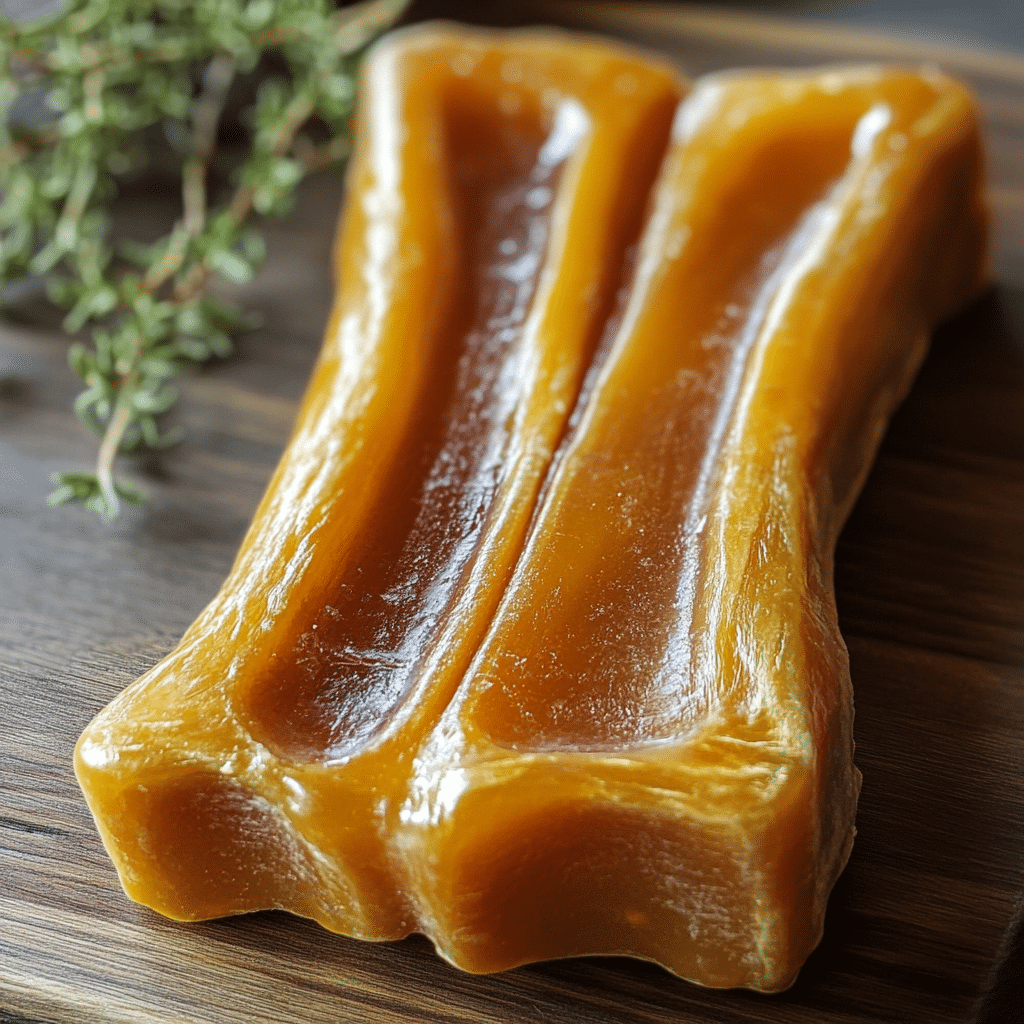
3. Are Hard Bones Safe for Dogs?
Understanding the Risks and Rewards of Hard Bones
When choosing a chew for your pup, safety is key. Hard bones can be incredibly satisfying for dogs—but only if chosen wisely. Here’s a breakdown of the pros and cons:
✅ Benefits of Hard Bones:
- Mental stimulation: Chewing relieves boredom and stress
- Dental cleaning: Helps reduce tartar and plaque buildup
- Muscle engagement: Strengthens jaw and neck muscles
- Natural instinct satisfaction: Chewing is a built-in canine behavior
⚠️ Potential Risks of Hard Bones:
- Tooth fractures: Too-hard bones can damage molars
- Choking hazard: If a bone splinters or is too small
- Digestive blockages: Ingesting large pieces or dense material
- Additives & preservatives: Found in many commercial bones
So, what makes apple & carrot hard bones for dogs a safer option? They’re made from plant-based ingredients, are less dense than rawhide or smoked bones, and naturally soften as your dog chews—reducing the risk of dental damage.
What Veterinarians Say About Hard Chews
Veterinarians typically recommend hard chews with the “thumbnail rule”:
If you can’t indent the chew with your thumbnail, it’s too hard for your dog’s teeth.
Apple and carrot chews often pass this test, especially when homemade or gently baked. Plus, they contain zero bones or synthetic materials.
4. How Apple & Carrot Hard Bones Support Canine Health
Dental Health: The Natural Toothbrush Effect
One of the biggest reasons dog owners love apple & carrot hard bones is for their dental-cleaning power. When your dog chews on these tough, fibrous treats, it mimics the action of brushing teeth. Here’s how:
- Scrapes off tartar: The crunchy texture rubs against teeth and gums
- Freshens breath: Natural fruit and veggie fibers help reduce odor-causing bacteria
- Massages gums: Promotes healthy blood flow and reduces gum disease risk
- Reduces vet cleanings: Saves money on dental procedures
Even better, carrots contain natural abrasives and apples add a mild acidity that helps break down plaque. Together, they’re a natural alternative to commercial dental chews—minus the chemicals.
Vitamins, Fiber & Hydration for Active Dogs
Feeding your dog apple & carrot hard bones does more than satisfy their chewing urge—it supports their entire system. Let’s break down the core health benefits:
🥕 Carrots Offer:
- Beta-carotene → Converts into Vitamin A for vision and immunity
- Vitamin K1 → Supports bone metabolism
- Potassium → Helps regulate fluid balance and nerve signals
🍎 Apples Offer:
- Soluble fiber (pectin) → Supports gut flora and digestion
- Vitamin C → Anti-inflammatory, especially for senior dogs
- Polyphenols → Powerful antioxidants that fight oxidative stress
Here’s how they compare in supporting key dog health areas:
| Health Area | Apples | Carrots |
|---|---|---|
| Vision Support | Moderate | High (beta-carotene) |
| Digestive Health | High | Moderate |
| Immunity Boost | High | High |
| Hydration | Moderate | High (88% water) |
| Dental Care | Good | Excellent |
Pro tip: Freeze them before baking for a longer-lasting chew that hydrates while dogs gnaw!
5. Can Dogs Eat Raw Carrots and Apples Safely?
The Right Way to Serve Apples and Carrots Raw
Raw fruits and veggies are among the most natural dog snacks out there—but they must be prepared the right way. Yes, dogs can eat raw carrots and apples, but a few rules make it safer and more beneficial.
✅ How to Safely Prepare Apples for Dogs:
- Wash thoroughly – Remove pesticide residue
- Remove seeds and core – Apple seeds contain cyanide compounds, which are toxic to dogs
- Cut into slices or cubes – Prevents choking, especially in smaller breeds
- Serve chilled – Especially refreshing in summer months
✅ How to Safely Prepare Carrots for Dogs:
- Peel or scrub – Removes dirt and pesticide traces
- Cut into appropriate size – Large sticks for big dogs, small rounds for tiny pups
- Use as training treats – Many dogs love raw carrots as crunchy rewards
If you’re using raw carrots and apples in homemade hard bones, baking them at low temps preserves much of their nutrient content while improving chew texture.
Precautions for Dogs with Sensitive Teeth or Gums
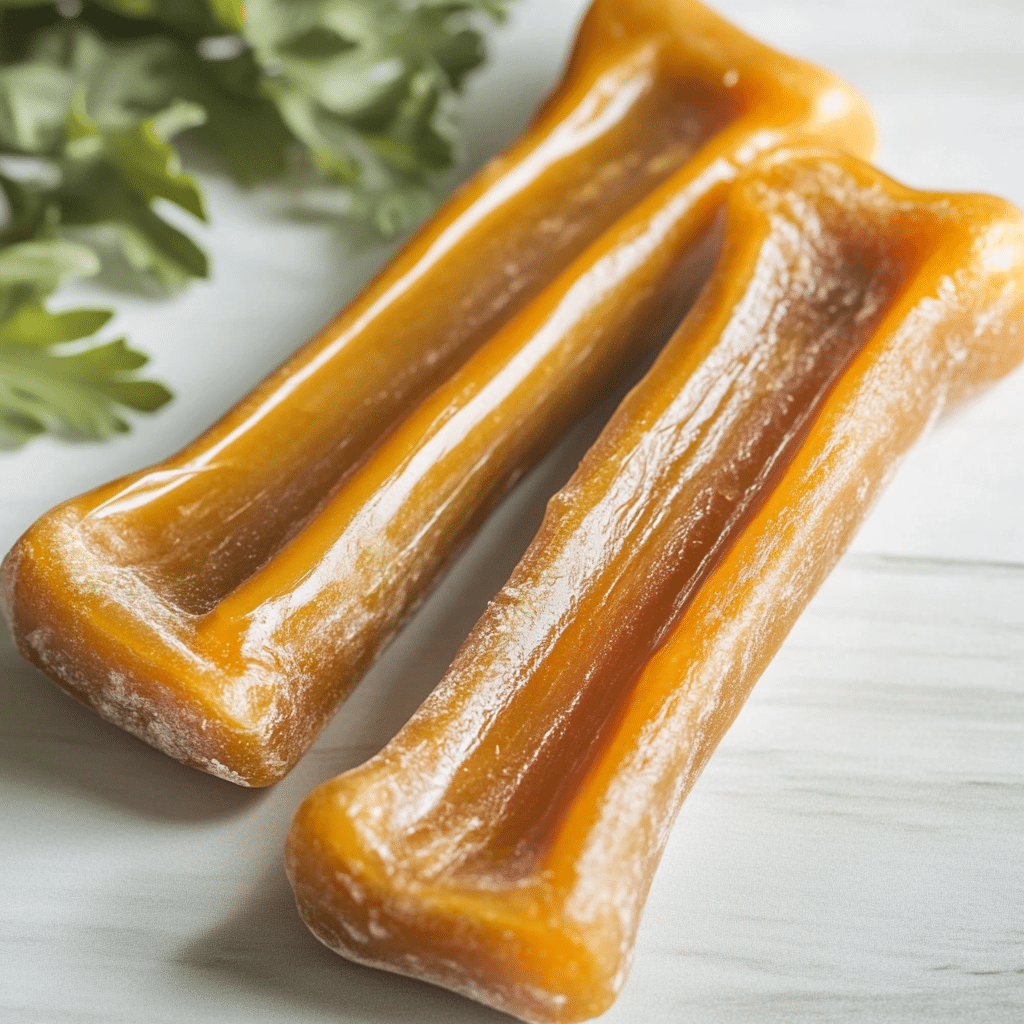
While apple & carrot hard bones are excellent for most dogs, some may have sensitivities especially seniors or breeds prone to dental issues. Here’s when you should be careful:
- Avoid extremely hard raw chunks if your dog has cracked or missing teeth
- Consider softening treats for teething puppies or older dogs (we’ll show you how in Part 7)
- Watch for allergies – While rare, some dogs may have mild reactions to apples
When in doubt, start with small portions and monitor how your dog reacts. If you notice any signs of discomfort, switch to a softer chew or steam the veggies before use.
6. How to Make Apple & Carrot Hard Bones at Home
Easy Homemade Recipe for Hard Chew Bones
Making your own apple & carrot hard bones for dogs isn’t just healthier—it’s rewarding and surprisingly simple. Here’s a no-fail recipe that delivers a crunchy texture your dog will love.
🦴 Homemade Apple & Carrot Hard Bones Recipe
Ingredients:
- 1 cup finely grated carrots (peeled)
- 1/2 cup unsweetened apple sauce (or 1 small apple, finely chopped and peeled)
- 2 1/2 cups whole wheat flour (or oat flour for gluten-sensitive pups)
- 1 egg
- 1 tbsp coconut oil
- Optional: 1/4 tsp cinnamon (for flavor boost)
Instructions:
- Preheat oven to 350°F (175°C)
- In a large bowl, mix all ingredients until a dough forms
- Roll out dough to 1/4 inch thick
- Use bone-shaped cookie cutters or slice into squares
- Place on parchment-lined baking sheet
- Bake for 35–40 minutes or until hard and golden
- Let cool completely before serving
Yields: 20–30 small bones (depending on cutter size)
Shelf life: Store in an airtight jar for up to 10 days or freeze for 2 months
Storage Tips to Keep Treats Fresh & Crunchy
Homemade treats don’t contain preservatives, so proper storage is key:
- Cool & dry container – Moisture will make the bones soft and stale
- Use silica gel packs (not accessible to dogs) to control humidity
- Freeze in small batches – Helps preserve freshness and chew texture
- Avoid plastic bags – Glass jars or metal tins work better
Pro tip: After baking, turn off the oven and let the bones sit inside for another hour. This removes extra moisture and makes them even crunchier.
7. Softening Dog Bones – When and How
How to Soften Hard Dog Treats Quickly and Safely
Not every dog can tackle a hard chew, and that’s okay. Whether you’re dealing with a teething puppy or a senior pup with sensitive teeth, knowing how to soften hard dog bones can make all the difference.
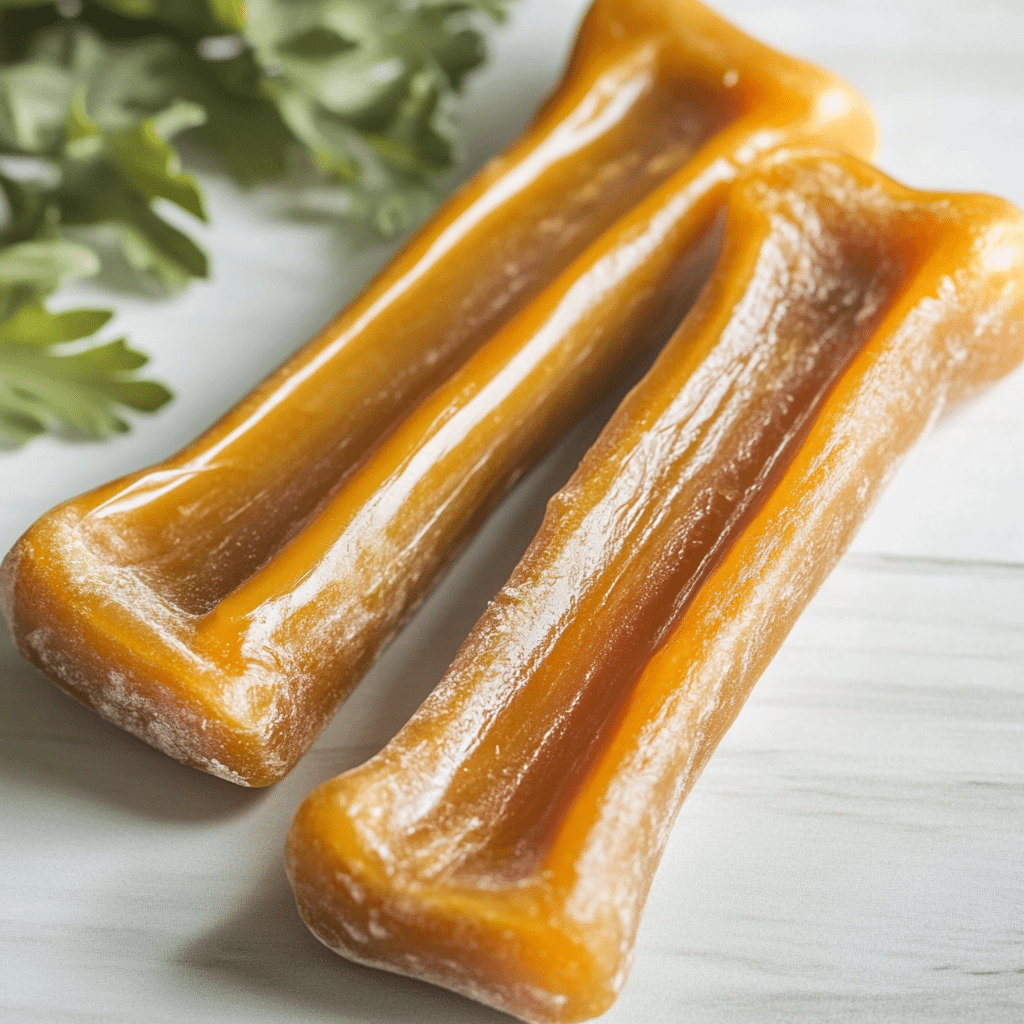
Here are a few safe and simple methods:
1. Soak in Warm Water
- Place the hard bone in a bowl of warm (not hot) water for 5–10 minutes
- This reduces density and adds moisture without making it soggy
2. Use Bone Broth
- Soak the treat in low-sodium bone broth for flavor and nutrition
- Ideal for picky eaters who need extra encouragement
3. Microwave with a Damp Paper Towel
- Wrap the bone in a damp paper towel and microwave for 10–15 seconds
- Softens the outer layer and releases aroma
4. Steam It Lightly
- Place in a steamer basket over boiling water for 2–3 minutes
- Preserves nutrients while reducing chew resistance
Each method works well for apple & carrot hard bones, especially if they’ve been stored in the fridge or freezer and need to be softened slightly before serving.
When to Avoid Hard Chews Altogether
While most dogs benefit from firm treats, there are a few cases where it’s best to skip them:
- Dogs with broken or missing teeth
- Puppies under 12 weeks (still developing jaw strength)
- Small breeds prone to choking
- Dogs with jaw, gum, or throat injuries
- Senior dogs with arthritis or dental disease
8. Raw vs Cooked – Which Form is Better for Dog Chews?
Pros and Cons of Raw Apple & Carrot Bones
Raw treats are praised for being natural and unprocessed, but they also come with some limitations. When it comes to apple & carrot hard bones for dogs, raw ingredients can be both helpful and tricky.
✅ Benefits of Raw Apples and Carrots:
- Preserve full vitamin content – Especially Vitamin C and A
- Crunchy texture – Naturally cleans teeth
- Hydrating – High water content is ideal for hot days
- Low calorie – Great for weight management
⚠️ Drawbacks of Raw Form:
- Shorter shelf life
- May be too hard for senior dogs or puppies
- Risk of contamination if not washed properly
- May not be appealing to picky eaters
Conclusion: Raw is great for snacks and quick rewards, but not always ideal for long-lasting chews.
Cooking Techniques That Preserve Nutrients
When you bake or lightly cook fruits and veggies, some nutrients are lost—but if done right, the result is still healthy, chew-safe, and more digestible. Here’s how to keep them nutritious:
🥄 Best Cooking Techniques for Dog Chews:
| Method | Description | Nutrient Retention |
|---|---|---|
| Light Baking | Cook at 325°F for 30–40 mins | Good (especially if sealed right after) |
| Steaming | Cook 3–5 mins until slightly soft | Excellent for Vitamin A |
| Dehydrating | Use dehydrator or oven at 200°F | Great for texture, lasts longer |
| Microwaving | Quick but can cause nutrient loss | Moderate at best |
For hard bones, light baking or dehydrating is best. It delivers the chewy consistency dogs love while preserving fiber and vitamins.
9. Choosing the Right Treat Based on Dog Size and Breed
Customizing Chews for Small, Medium, and Large Dogs
Every dog is different—what works for a Great Dane might be dangerous for a Chihuahua. That’s why choosing the right size and density for apple & carrot hard bones matters.
Here’s a quick breakdown by size:
| Dog Size | Recommended Bone Size | Notes |
|---|---|---|
| Small (under 20 lbs) | Thin sticks or bite-size pieces | Avoid large, heavy bones that can be choking hazards |
| Medium (20–50 lbs) | Standard 2–3 inch bones | Can handle firmer chews with some resistance |
| Large (50+ lbs) | Thick, long bones or braided shapes | Require dense, durable treats that won’t splinter |
Make sure you adjust texture too—bake longer for tougher chews, shorter for softer ones. Freezing after baking can also increase durability for stronger chewers.
When to Switch from Puppy Chews to Adult Bones
Puppies have different needs compared to adult dogs, especially when it comes to chew hardness. Here’s a guideline:
- 6–12 weeks: Use steamed or raw soft carrots only
- 3–6 months: Transition to lightly baked soft chews
- 6+ months: You can introduce apple & carrot hard bones, watching for tooth development
- 12+ months: Adult dogs can enjoy full-density chews
Also, monitor breed behavior. Aggressive chewers (like Labs or Boxers) need bones with a thicker structure, while toy breeds (like Yorkies or Pomeranians) do best with thin, flexible options.
FAQs
Can dogs eat raw carrots and apples?
Yes, absolutely. Raw carrots and apples are not only safe but also nutritious snacks for dogs when prepared correctly. Always wash them thoroughly, remove apple seeds and core, and cut both into manageable sizes. These raw foods provide fiber, hydration, and natural vitamins.
Is it okay for dogs to chew on hard bones?
Yes—if they’re the right kind. While many commercial hard bones are too dense and risk dental fractures, apple & carrot hard bones are a safer, plant-based alternative. They help clean teeth and relieve stress while offering natural nutrition. Always supervise chewing.
How to soften a dog bone quickly?
If your dog struggles with hard treats, try soaking the bone in warm water or low-sodium broth for a few minutes. You can also microwave it wrapped in a damp paper towel for 10–15 seconds or lightly steam it. This keeps it chewable without ruining the flavor or nutrition.
Are hard carrots good for dogs?
Yes! Hard carrots are one of the best natural chews for dogs. They help clean teeth, reduce plaque buildup, and offer vitamins like beta-carotene and vitamin K1. They’re also low in calories, making them perfect for dogs on a diet.
Are carrots OK for dogs to chew on?
Definitely. Dogs love the crunchy texture of carrots, and they’re perfectly safe in both raw and cooked forms. Just make sure to cut them into suitable sizes based on your dog’s breed and chewing strength to avoid choking risks.
For more recipes follow me on PINTEREST

